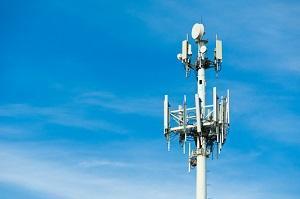 If you are arrested on the suspicion that you committed a crime, part of your defense may include showing that you were not near the location of the crime when it was taking place. But, what if records from a cell phone tower suggest that you were in the area of the crime? Are cell towers reliable enough to provide evidence that could change a criminal defendant’s life? This is the question that the Connecticut Supreme Court must answer as it reviews the case of a man currently serving 20 years prison for a robbery in Wethersfield in 2012.
If you are arrested on the suspicion that you committed a crime, part of your defense may include showing that you were not near the location of the crime when it was taking place. But, what if records from a cell phone tower suggest that you were in the area of the crime? Are cell towers reliable enough to provide evidence that could change a criminal defendant’s life? This is the question that the Connecticut Supreme Court must answer as it reviews the case of a man currently serving 20 years prison for a robbery in Wethersfield in 2012.
Constantly Changing Technology
Before the advent of cellular technology, criminal prosecutors could definitively place a suspect near the scene of a crime in one of a few ways. The suspect’s own admission, of course, was—and still is—the most certain, but a prosecutor could also utilize physical evidence such as hair, blood, or clothing fibers, as well as the testimony of eyewitnesses. Today, however, a person is likely to carry a cell phone constantly sends and receives a variety of signals, allowing the person to make phone calls, receive emails, and share messages, while creating records of each transmission along the way.
Conviction and Appeal
The case before the Connecticut Supreme Court involves a criminal defendant who was convicted of home invasion and robbery of an 82-year-old Wethersfield woman. According to court records, the man’s cell phone “pinged” a cell tower near the woman’s home around the time of the robbery. Prosecutors presented the tower’s records as evidence which, in part, led to the man’s conviction.
The defendant appealed his conviction on the basis that qualified experts were not called upon to testify regarding the reliability or relevance of cell tower evidence. The problem, according to industry professionals who have testified in similar cases, is that a cell phone does not necessarily ping the closest tower. Instead, the phone finds the tower with the clearest signal, which could be up to 20 miles away.
The Supreme Court heard oral arguments in the case this week. No decision has yet been published.
Challenging Evidence
In any criminal proceeding, the burden of proof is on the prosecution. This means that the state is responsible for producing evidence that proves the allegations beyond all reasonable doubt. Evidence, however, can often be circumstantial, misleading, and, in some cases, completely irrelevant. That is why it is so important to work closely with a skilled defense attorney who can help analyze the evidence and challenge it when necessary.
When you have been charged with a crime, you need help and you need it immediately. Contact an experienced Connecticut criminal defense attorney to discuss your case. Call the Woolf & Ross Law Firm, LLC at 860-290-8690 and schedule your confidential consultation today.
Sources:
http://www.nhregister.com/government-and-politics/20161211/connecticut-case-challenges-cellphone-tower-evidence-in-criminal-trials
http://abcnews.go.com/US/wireStory/connecticut-case-challenges-cellphone-tower-evidence-44122511
 50 Founders Plaza
50 Founders Plaza

